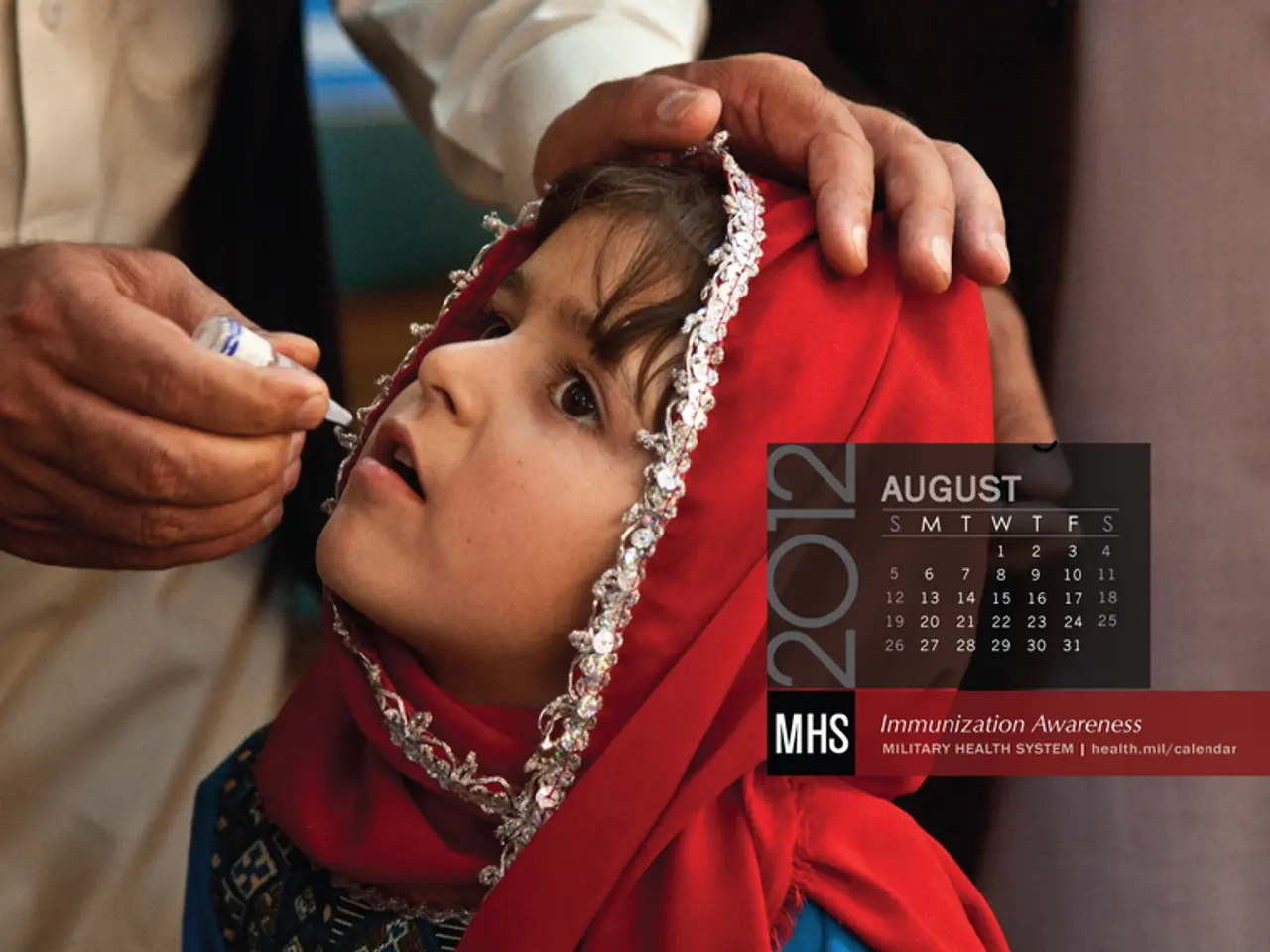The Potential Dangers and Inadequate Recognition of Pertussis (Whooping Cough)
In recent years, Germany has seen a resurgence of whooping cough, a highly contagious infectious disease, primarily due to decreased herd immunity caused by reduced vaccination rates and disruptions during the COVID-19 pandemic.
Whooping cough, also known as pertussis, is characterized by a series of short, hard coughs followed by whooping sounds, shortness of breath, redness, and sometimes blueness. This resurgence has led to an increased number of cases, particularly among young children under the age of four, with incidences reaching their highest level since 2013.
Key factors contributing to this resurgence include lower vaccination coverage, waning immunity, increased detection and reporting, and high incidence in young children. Pertussis vaccination rates dropped during the COVID-19 pandemic due to reduced access to healthcare services and vaccine hesitancy, which decreased community immunity against Bordetella pertussis, the causative agent of whooping cough. Immunity from both vaccination and natural infection decreases over time, requiring booster shots. Inadequate booster coverage in adolescents and adults has contributed to ongoing transmission.
As COVID-19 lockdowns eased from 2021 onward, contact rates increased, allowing pertussis to spread more readily again, which led to a rise in reported cases starting in 2023 and continuing into 2024. In 2023, Germany saw around 77 cases per 1,000 residents under age four, the highest since 2013.
Public health efforts are emphasizing the importance of booster vaccinations in adolescents, adults, and pregnant women to better protect infants and curb transmission. The Standing Committee on Vaccination (STIKO) at the Robert Koch Institute recommends a basic immunization against pertussis at ages 2, 4, and 11 months. Pregnant women should be vaccinated in the third trimester, and a booster vaccination is recommended every ten years for close contacts of babies.
Newborns are particularly at risk of whooping cough infection due to the lack of maternal immunity. Infection with whooping cough occurs through droplets, mainly during sneezing, coughing, or speaking, and it spreads through coughing, sneezing, or speaking via tiny droplets from the mouth and nose, up to one meter in the air.
While whooping cough can be prevented by vaccinations, it's important to note that about half of the children with whooping cough must be hospitalized and monitored. In adults, whooping cough often manifests as a persistent cough that lasts an average of 48 days, but can extend up to 72 weeks. In adolescents, adults, and most children, whooping cough often manifests as a prolonged cough. Vomiting often follows whooping cough attacks.
The pathogen of whooping cough produces toxins that damage the mucous membranes of the airways. Whooping cough is one of the most common respiratory tract infections worldwide. It's crucial to maintain vaccination efforts, especially booster doses, to reverse this trend.
Unrelated incidents, such as the technical fault leading to the closure of the Viereichenhautunnel in Stuttgart, and accidents involving individuals like Markus Brauer in Weil der Stadt due to the failure of his vehicle's brakes, are not directly linked to the resurgence of whooping cough in Germany.
[1] Robert Koch Institute [2] Centers for Disease Control and Prevention [3] World Health Organization [4] European Centre for Disease Prevention and Control [5] German Journal of Infectious Diseases
- Booster vaccinations for pertussis, also known as whooping cough, are essential to better protect infants and curb transmission, as recommended by the Standing Committee on Vaccination (STIKO) at the Robert Koch Institute.
- Public health efforts are critical to maintain vaccination efforts, especially booster doses, as stated by the World Health Organization, to help reverse the resurgence of medical-conditions such as whooping cough, and to promote health-and-wellness for all ages.




